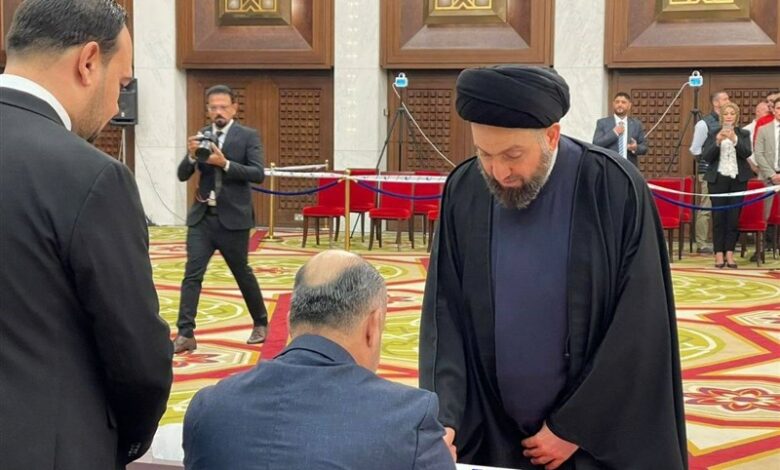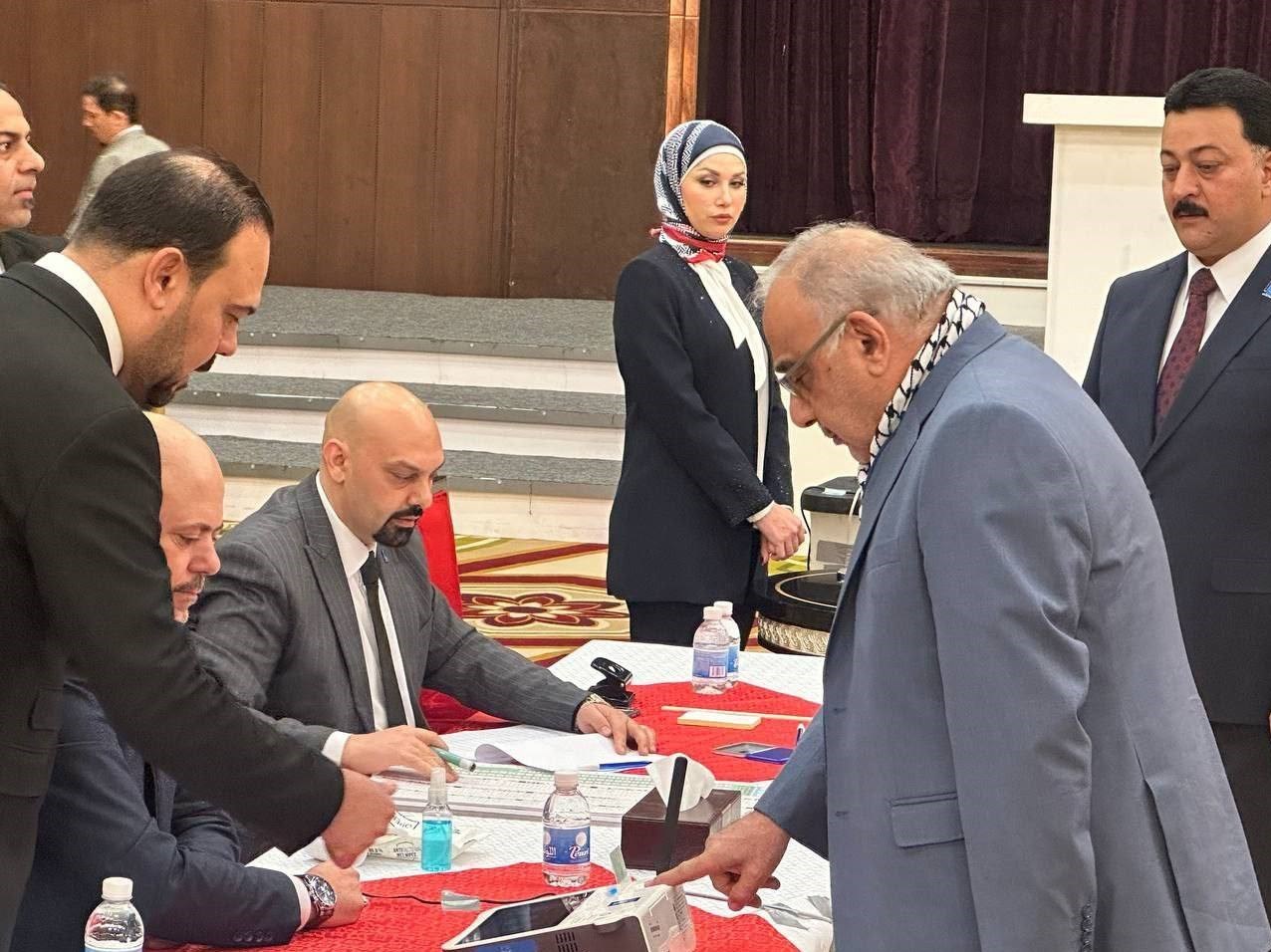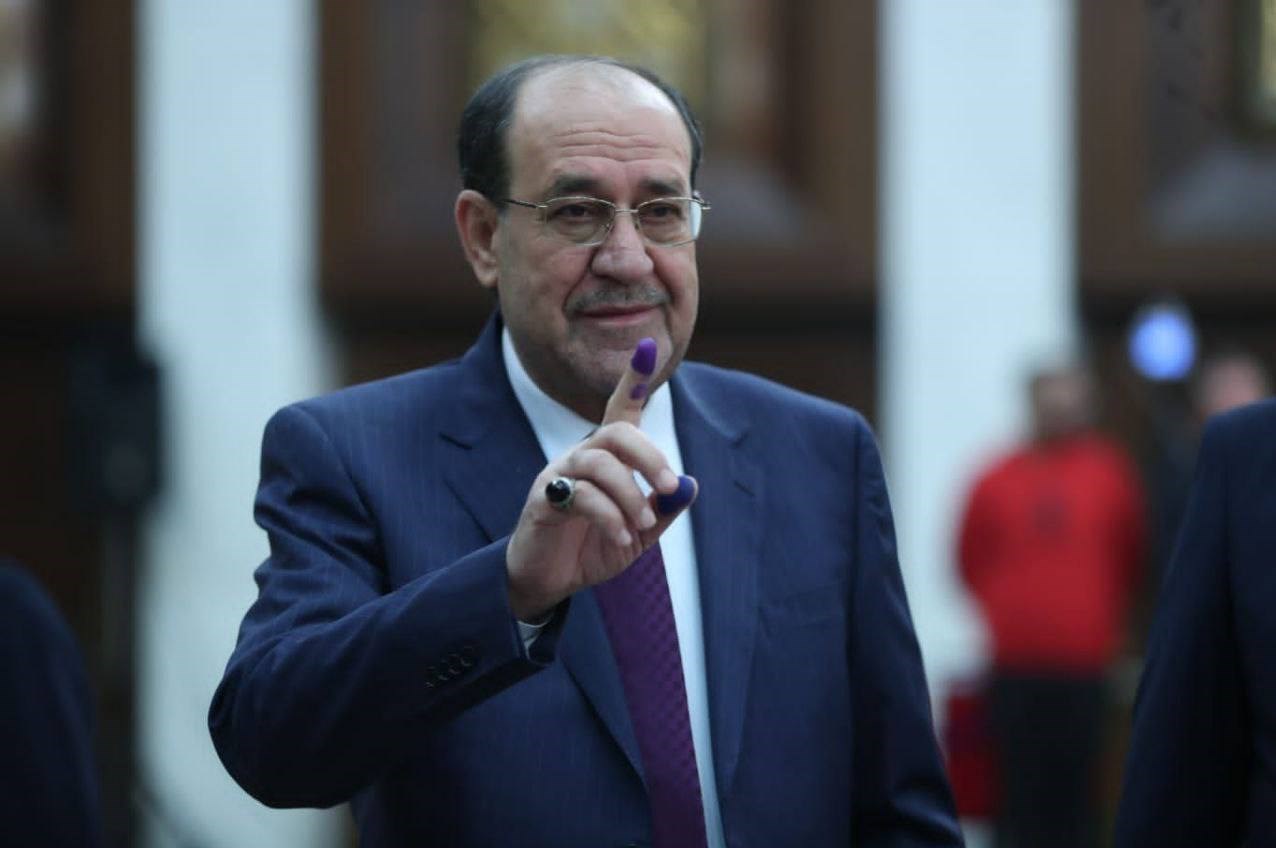Iraqi provincial council elections; Arrangement of political currents and reasons for its importance

| The provincial council elections in Iraq have started after 10 years this morning. The results of these elections in the Shiite sector correspond to the popularity of the political system among the majority of Iraqi people (Shiites) and in the Sunni sector it has turned into a referendum for Muhammad al-Halbusi. |
According to the report of Tasnim International Group, today, December 18, the elections of Iraqi provincial councils have started all over the country except for the Kurdistan region. Of course, this election actually started on December 16 for the armed and security forces, as well as for the refugees resulting from the Iraq war with ISIS – who are still in the refugee camps – and its general start is today, December 18.
The importance of these elections is that this The councils will have the authority to supervise the performance of governors and their selection, and the authority to approve and supervise the distribution of provincial budgets and provincial projects. For this reason, different political parties will try to get the most seats in the most provinces, and for each party, increasing its influence in each province can be a prelude to the success of this party in the 2025 parliamentary elections. For this reason, in this report, we will have a brief review of the political situation among Shiites, Sunnis, and Kurds. /strong>
The political situation of Shiite parties (majority) should be examined in two parts: traditional parties and emerging parties. It should also be kept in mind that these elections will be held without the participation of “Al-Fratin Movement” affiliated with “Mohammed Al-Sudani” the Prime Minister of Iraq and the boycott of the elections by the Sadr Movement.
Traditional parties are mainly affiliated with the “Shia Coordination Framework” and They participate in various coalitions. The most important of them is the “Nabni coalition” (Misazim), which consists of parties close to the axis of resistance, such as “Asaeb Ahl Haq”, “Badr Organization”, “Janbash al-Haqq”, etc., and the leadership of this coalition is under the responsibility of “Hadi Al-Amiri”. . But on the other hand, this coalition has a strong rival, which is the “State of Law” coalition led by “Nouri al-Maliki”. Also, along with these two coalitions, “Qawy al-Dawlah” under the leadership of “Seyd Ammar al-Hakim and Haider al-Abadi” also participate.
But the other part of Shiite participation in elections, coalitions outside It is the coordination framework, in other words, coalitions of civil parties. Most of these coalitions are trying to show themselves close to the supporters and youth of the October 2019 protests. But it seems that the closest of these coalitions to these protests is the “Qayim al-Madani” coalition, in which famous parties related to the October 2019 protests are members.
The other coalition in this regard is the “Iraqi Foundation” coalition It is led by “Mohsen Al Mandalawi”, the first vice president of the parliament, and a part of the independent representatives of the parliament also participate in it, as in the future, the representatives of this coalition will have more flexibility to cooperate with the Shiite coordination framework. Also, among the flexible coalitions in order to interact with the Shiite coordination framework, we have the coalitions affiliated with the current governors. Such cases have been observed in provinces such as Karbala and Basra, where the governors entered the elections using the financial and administrative facilities in their hands and the social base they have in order to expand their political role-playing and survival in their respective positions.

Sunni efforts to weaken al-Halbusi
competitions among Sunnis (minority) It is more related to giving a political blow to “Mohammed Al-Halbousi”, the deposed Speaker of the Parliament. After the federal court’s decision to terminate the membership of this political figure from Anbar province, now the provincial council elections have become a referendum for his political existence and his affiliated “Tadegh” party.
In this context Al-Halbousi has many rivals, the most important of which is the “Hasm” coalition led by “Sabet Al-Abasi”, the Minister of Defense in the current government of Iraq. The support of this coalition are figures such as “Jamal Al-Karbouli”, a Sunni politician, “Rafi Al-Eisawi”, the former Minister of Finance in Nouri al-Malki’s government, and “Qassem Al-Fahdawi”, the former Minister of Electricity in Haider Al-Abadi’s government, etc. Another rival of Azam coalition led by Muthani al-Samrai is a member of the parliament who is competing to beat al-Halbusi. Is; However, it is most likely that Khamis al-Khanjar will unite with al-Halbousi in the end. On the other hand, Shiite parties such as “Atta Movement” led by “Faleh al-Fayaz”, the head of Hashd al-Sha’bi organization, are active in Sunni areas, and these parties will naturally act to the detriment of al-Halbousi with their votes. But in any case, in order to hit him, Al-Halbousi’s rivals must defeat him in the areas around Baghdad and Azamiyeh, as well as Anbar province, or create a balance in these areas in terms of the number of seats. Otherwise, it seems unlikely that they will be able to go anywhere.
Kurdish parties and return to Kirkuk and Nineveh
These elections will not be held in the three provinces of Erbil, Dohuk and Sulaymaniyah, however, Kurdish parties, including the Democratic Party and the Patriotic Union, participate in Kurdish regions under the federal government. Among these regions are the two provinces of Kirkuk and Nineveh. Until 2017, Kurdish parties held high positions in these two provinces, and for example, in Kirkuk province, “Najmuddin Karim”, one of the leaders of the Patriotic Union and a supporter of separatism, was the governor of this province.
But after the events of 2017 and the unsuccessful attempt of the region to split, the parties of the region lost their influence in the federal government areas and now they want to return to these areas through elections. Regardless of the differences between these parties, they face Arab and Turkmen rivals in Kirkuk. > This year’s elections will be held in a situation where, due to the reasons stated, there is not much competitive atmosphere among the Shia parties, but this issue is at its highest level among the Sunni parties, and in the areas where there are Arabs and Kurds. Paying attention to the return of Kurdish parties, this issue is at a high level. In any case, it seems that after about a year has passed since the formation of the Sudanese government and two years since the current parliament, the upcoming elections will be a good opportunity to have a preliminary assessment of the social base of the Shiite, Sunni, and Kurdish parties for the 2025 parliamentary elections. .
Author: Shihab Noorani Far, an expert on Iraqi issues
end of message/
| Publisher | Tasnim News |



